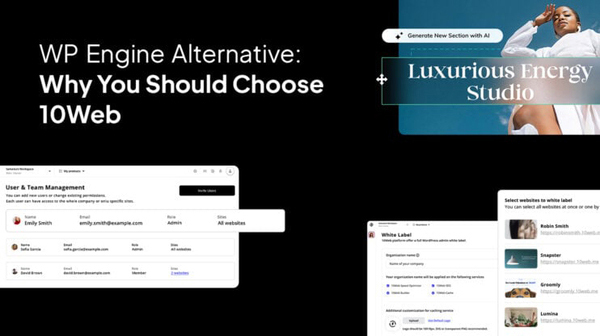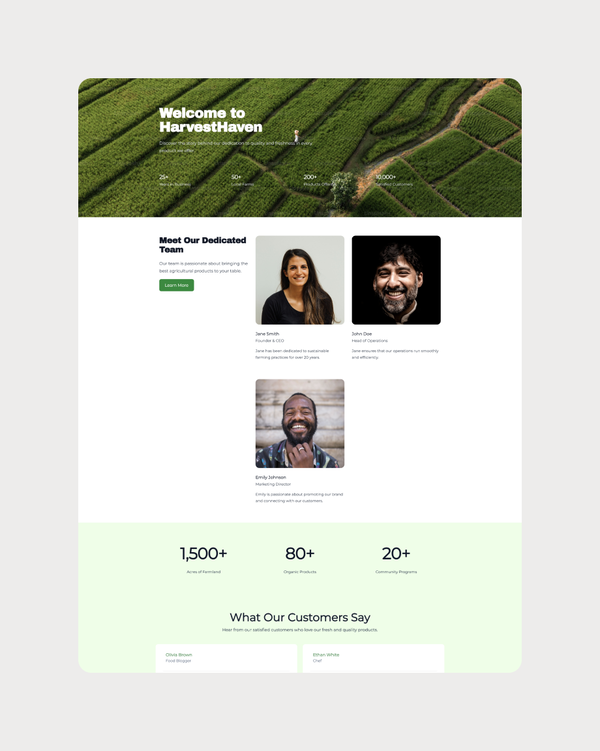The Benefits of Create Website with WordPress
A Beginner’s Guide to Create Website with WordPress
Create Website with WordPress
In recent years, the rise of no code web builders has revolutionized the way individuals and businesses create websites. No code web builders provide an easy, efficient, and cost-effective solution for building customized websites without having to write a single line of code. This innovative technology has leveled the playing field, allowing anyone, regardless of their technical expertise, to create stunning websites with ease.

How to Master Create Website with WordPress
Create Website with WordPress
Importance of Web Design
First impressions matter, and in the digital age, your website is often the first point of contact between your business and potential customers. A poorly designed website can deter visitors, leading to high bounce rates and lost opportunities. On the other hand, a well-designed website can capture the attention of users and keep them engaged, ultimately driving conversions and fostering customer loyalty.
In addition to aesthetics, web design also plays a crucial role in user experience. A website that is easy to navigate, with clear navigation menus and intuitive layouts, can help users find the information they are looking for quickly and efficiently. This can lead to higher engagement and increased time spent on the site, which can translate into higher conversions and sales.
Furthermore, web design can also impact search engine rankings. Search engines like Google prioritize websites that are well-designed, mobile-friendly, and optimized for speed and performance. By following best practices in web design, you can improve your website’s visibility in search results and attract more organic traffic.
Tips for Effective Web Design
Now that we have established the importance of web design, let’s discuss some tips for creating an effective website:
1. Define Your Goals: Before starting the design process, it’s essential to clearly define your goals and objectives for the website. What do you want to achieve with your website? Are you looking to drive sales, generate leads, or increase brand awareness? By understanding your goals, you can tailor your website design to meet those objectives.
2. Know Your Audience: Understanding your target audience is crucial for creating a website that resonates with your visitors. Consider factors such as demographics, preferences, and behaviors to tailor the design and content of your website to meet their needs and expectations.
3. Keep it Simple: Clean and minimalist designs tend to perform better than cluttered and busy layouts. Keep the design simple and focus on highlighting essential information and calls-to-action. Avoid using too many colors, fonts, and graphics that can overwhelm users and distract from the main message.
4. Mobile Optimization: With more and more users accessing websites on mobile devices, it’s crucial to ensure your website is optimized for mobile responsiveness. A mobile-friendly design will provide a seamless browsing experience across all devices and improve user engagement and retention.
5. Use High-Quality Images and Graphics: Visual elements play a significant role in web design, as they can help capture the attention of users and convey your brand message effectively. Utilize high-quality images and graphics that are relevant to your content and align with your brand identity.
6. Clear Navigation: Easy navigation is essential for helping users find their way around your website. Use clear and intuitive navigation menus, breadcrumbs, and internal linking to guide users to relevant pages and improve their overall browsing experience.
7. Loading Speed: Slow loading times can frustrate users and lead to high bounce rates. Optimize your website for speed by compressing images, minifying code, and utilizing caching mechanisms to enhance performance and provide a seamless browsing experience.
8. Test and Iterate: Once your website is live, it’s essential to continuously monitor its performance and gather feedback from users to identify any areas for improvement. Conduct A/B testing, analyze user behavior, and make iterative changes to optimize your website for better results.
An SEO audit is a thorough examination of a website’s performance in terms of search engine optimization. It involves analyzing various elements such as on-page and off-page optimization, technical aspects, content quality, and user experience. By conducting an SEO audit, businesses can identify areas of improvement, fix any issues that may be hindering their SEO efforts, and ultimately improve their website’s visibility and ranking on search engines.
There are several key steps involved in conducting an SEO audit:
1. Reviewing Keywords and Content: One of the first steps in an SEO audit is to review the website’s keywords and content. Are the keywords relevant to the business and its target audience? Are they used strategically in titles, headings, meta tags, and throughout the content? Is the content high-quality, informative, and engaging? Analyzing keywords and content is essential for ensuring that the website is optimized for relevant search queries and provides value to visitors.
2. Checking On-Page Optimization: On-page optimization refers to the elements on a webpage that can be optimized for search engines, such as meta tags, headings, images, and internal links. During an SEO audit, it is important to check that these elements are properly optimized with relevant keywords and that they comply with best practices for SEO. This helps search engines understand the content of the website and rank it accordingly.
3. Assessing Technical SEO: Technical SEO involves optimizing the technical aspects of a website to improve its crawlability, indexability, and overall performance in search engines. This includes factors such as site speed, mobile-friendliness, URL structure, and sitemap. By assessing technical SEO during an audit, businesses can identify any issues that may be impacting their website’s visibility and address them to improve their overall SEO performance.
4. Evaluating Backlinks and Off-Page SEO: Backlinks are a crucial ranking factor in SEO, as they indicate the credibility and authority of a website. During an SEO audit, it is important to evaluate the website’s backlink profile to ensure that it is diverse, high-quality, and free from spammy links. Additionally, off-page SEO factors such as social signals, local citations, and online reviews should be considered to enhance the website’s authority and reputation in the eyes of search engines.
5. Monitoring User Experience: User experience plays a significant role in SEO, as search engines prioritize websites that provide a positive and seamless experience for visitors. During an SEO audit, it is important to assess factors such as page layout, navigation, mobile responsiveness, and loading times to ensure that the website meets user expectations and encourages engagement and conversions.
In addition to these key steps, there are several tools and techniques that can be used to conduct an SEO audit effectively. These include:
– Google Analytics: Google Analytics provides valuable insights into website traffic, user behavior, and engagement metrics, which can help identify areas of improvement for SEO.
– Google Search Console: Google Search Console offers data on website performance, indexing status, and search queries, allowing businesses to monitor and optimize their presence in Google search results.
– SEO Auditing Tools: There are several SEO auditing tools available, such as SEMrush, Moz, and Ahrefs, that can analyze various aspects of a website’s SEO performance and provide recommendations for improvement.

Create Website with WordPress Solutions
Create Website with WordPress
Overall, web designers play a crucial role in helping businesses establish a strong online presence and connect with their target audience. With their combination of technical skills and creativity, web designers are able to create visually stunning and user-friendly websites that attract and engage users. As the demand for skilled web designers continues to grow, it is clear that their role will remain essential in the digital age.

